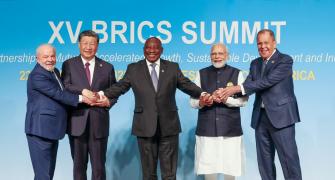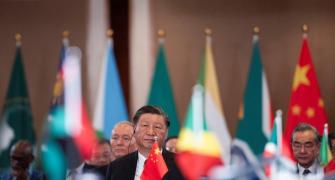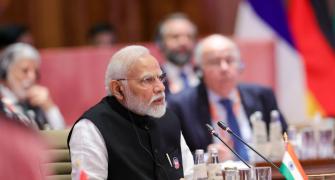This may be in line with Russia's private military company, Wagner Group, which was controlled until 2023 by Yevgeny Prigozhin, a former close ally of Russia's president Vladimir Putin. The group used the infrastructure of the Russian Armed Forces.

China has hired a private security contractor to protect its overseas assets, especially those in geopolitically unstable regions like West Asia, Africa and Latin America, according to a report by the South China Morning Post (SCMP).
It added that the focus will be particularly on facilitating the Belt and Road Initiative (BRI).
This may be in line with Russia's private military company, Wagner Group, which was controlled until 2023 by Yevgeny Prigozhin, a former close ally of Russia's president Vladimir Putin. The group used the infrastructure of the Russian Armed Forces.
According to 2022 data by China's Ministry of Commerce, the country has over 47,000 overseas companies across 190 countries. These companies are mainly occupied in energy, mining, infrastructure construction and manufacturing. In total, these companies employ around 4.1 million people, including 2.5 million foreign nationals.
According to an earlier report by state-owned Xinhua, a BRI group in the country issued an official document in November highlighting the need to 'hammer out the safety protection in a detailed way'.
Later, China's state security ministry also pointed out the need to ensure the security of the country's mining projects, personnel and assets.
The danger, according to the report, emerges in the face of several conflicts in Africa as well as the war in Gaza. Moreover, several attacks on Chinese people and projects have been reported of late, including in Pakistan.
Notably, the report added that Western countries, including the United States and European Union, have been hiring private security agencies for their global assets for years. For China, this seems to be in line with its 'Wolf Warrior Diplomacy'.
What is 'Wolf Warrior' diplomacy?
The term 'Wolf Warrior Diplomacy' gained popularity after Xi Jinping became the President of China.
Under the previous president, Hu Jintao, Chinese diplomats maintained a low profile overseas.
However, Jinping asserted a more aggressive approach to handling issues domestically as well as internationally.
In 2015, a Chinese action film titled 'Wolf Warrior' and its 2017 sequel served as an inspiration for the term. It showed China's fighters defending the country against Western mercenaries.
Later, in a column in the Indian Express, C Raja Mohan wrote: the new 'wolf warrior diplomacy' confronts head-on any criticism of China in the public sphere.
They lecture host governments and don't always show up when 'summoned' by foreign offices. Delhi has been at the receiving end for a while -- especially during the recent crises of Doklam and Ladakh.










